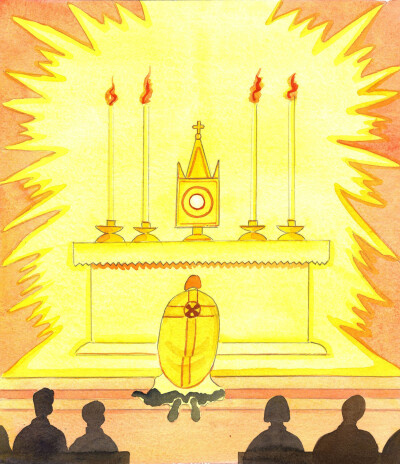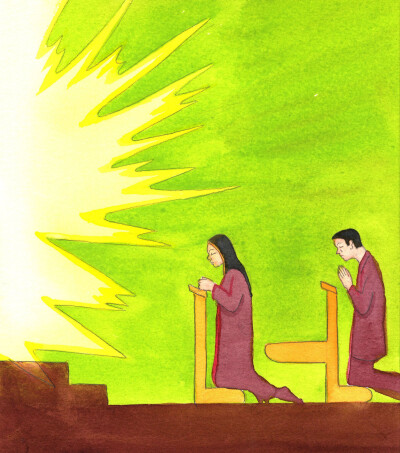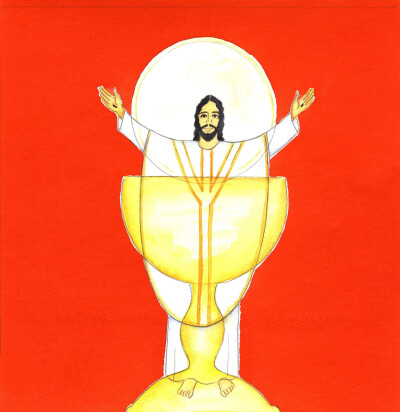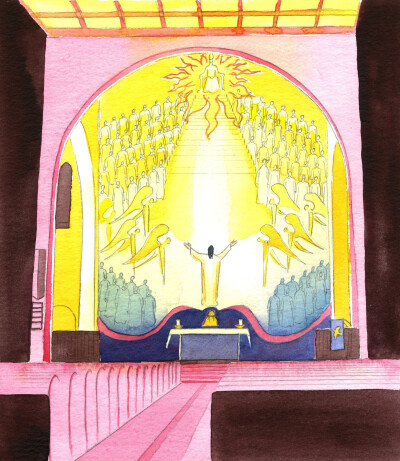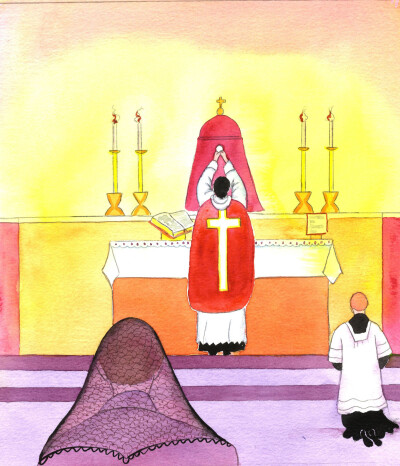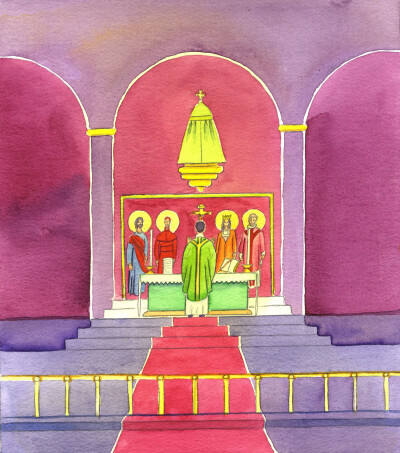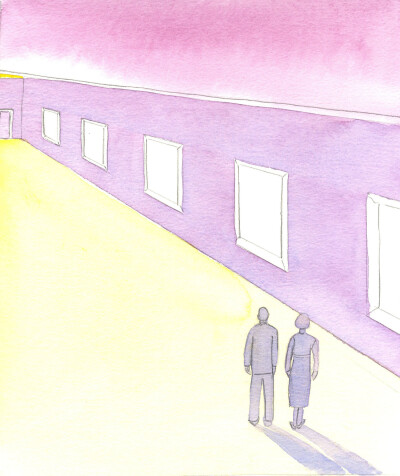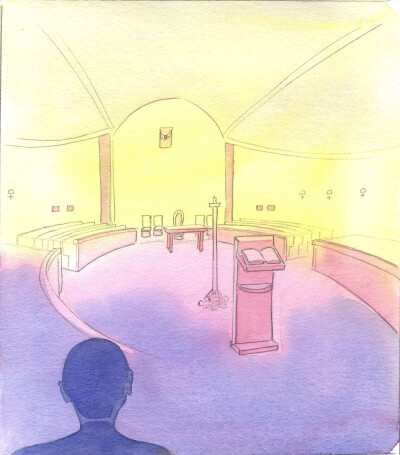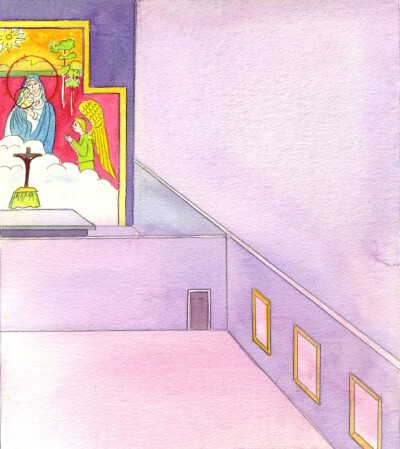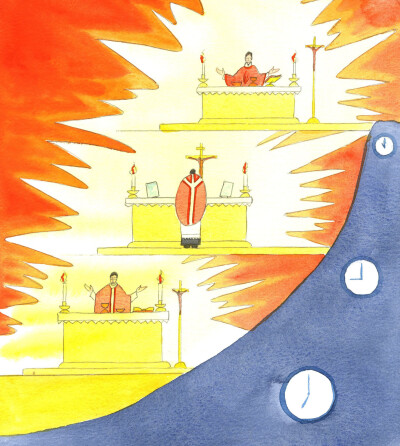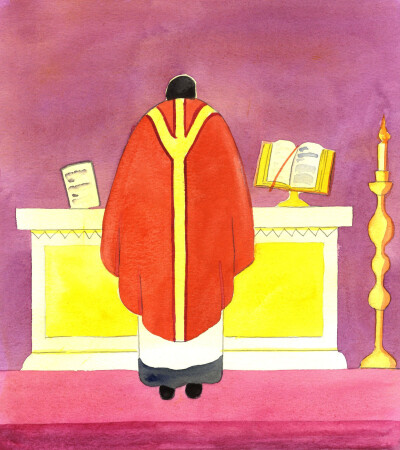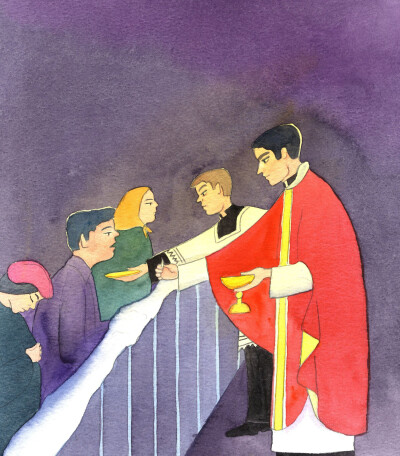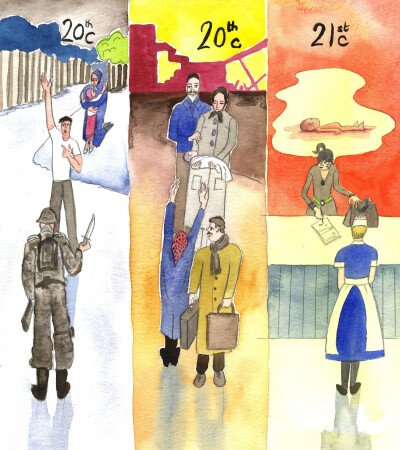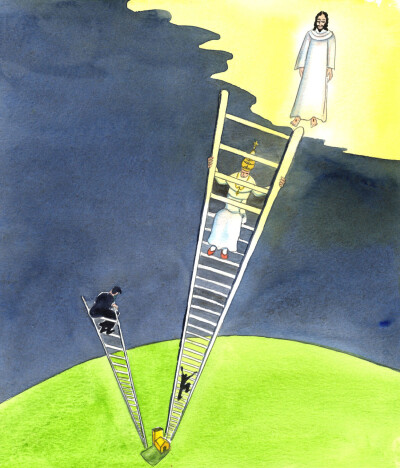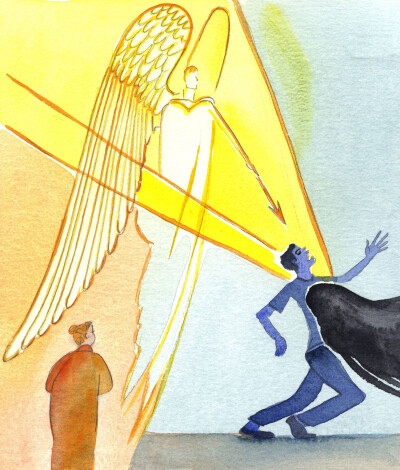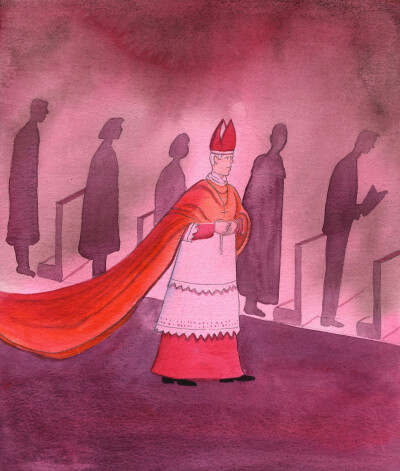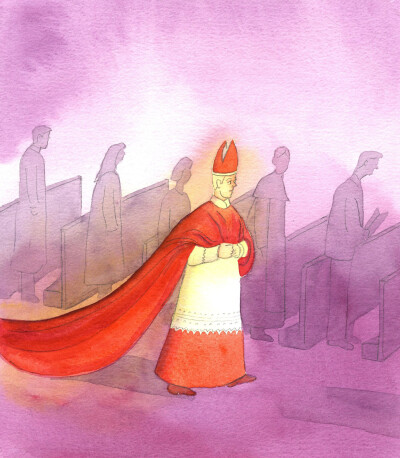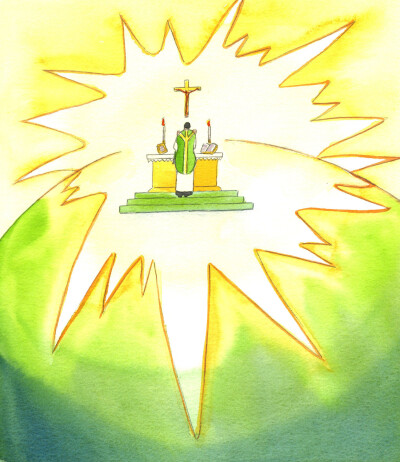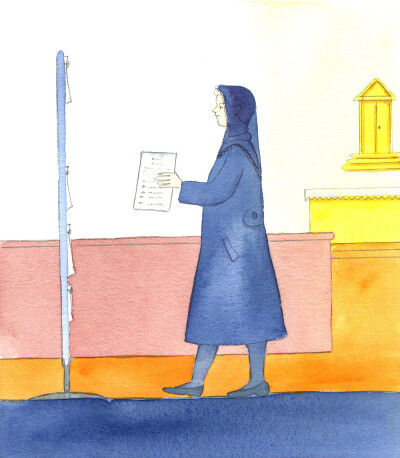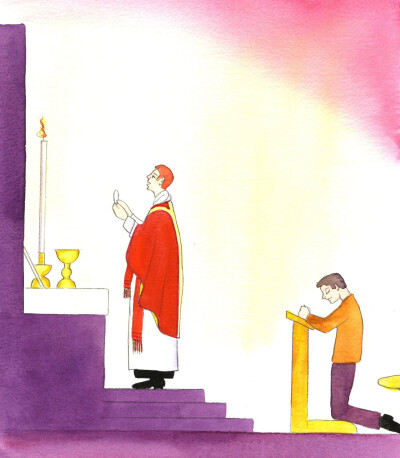Search Page
Showing 21 - 40 of 90
Christ is deeply touched, and very pleased, when we take part in traditional devotions such as Adoration of the Blessed Sacrament, with Benediction, or the 'Forty Hours', and various devotions which honour His holy Mother Mary. He does not want anyone to criticise such practices, nor to ban them.
To be in the Presence of Christ in the Blessed Sacrament is to be in the Presence of God: to be with our Saviour now, as the Apostles were with Him in Galilee or Jerusalem. Though He is 'hidden', he deserves adoration and reverence in traditional ways. It is not appropriate to arrange rock music, or half-naked dancing girls.
Jesus Christ, our incarnate God, is substantially Present with us in the Holy Eucharist. We cannot see Him within the Sacred Host. But we who believe in His words accept the truth about His Presence, rejoice in it - and are eager to show our love and devotion in traditional ways of adoration, reverence, and with processions and hymns.
It is God's wish that our Catholic churches be recognisably houses of prayer. We enter, on the threshold of Heaven; and it is right that we should see reminders of our fellow-worshippers, the Saints and Angels - and of the Saviour Who welcomes us from the tabernacle - and not see merely a bare plaster wall.
In deliberate steps (Christ explained), He had led me slowly towards a recognition of the reverence and beauty associated with the Traditional way of offering the Holy Sacrifice, and the customary way, for women, of veiling their hair in His Presence, during the Sacred Liturgy.
Christ told me that we offer glory and honour to the Blessed Trinity at every valid Mass. And He wants everyone to know how highly He values the extraordinary form of the Roman Rite, and to appreciate all that is good about its antiquity, wording, language and reverence.
Just as, in an art gallery, it is tragic if pictures have been cut from their frames, and visitors can only gaze at empty spaces, so it is also tragic, the Lord showed me, when the Catholic faithful must look at empty spaces in their churches where once they found beautiful and expressive imagery, to inspire them.
Some Catholic churches have neither a crucifix in them, nor a statue of Our Lady. Just as an art-lover would see it as a tragedy if all the pictures in a gallery were to have been cut out of their frames, so faithful Catholics are not wrong to call it a 'tragedy' when a new church is built - or an old one stripped - and those who pray there must face bare walls, without reminders of Gospel scenes, or Heavenly realities.
If we enter a little door labelled 'The Past' we enter a world where Catholic churches were adorned with glorious images, to the glory of God and to inspire and educate the faithful. There is no reason why good Catholics today cannot commission and install powerful reminders of the Creation, of Christ and His Mother Mary, of the Last Judgement, and Heaven and Hell, and other subjects.
Christ is pleased to see the traditional form of the Mass encouraged, yet Christ is Really Present in His Risen glory, after the Consecration, in every valid Mass offered by a Catholic priest, whether the words used are the traditional Canon in Latin by a priest facing, with the people, towards God the Father, or by a priest using the more recent form of words, as the priest stands behind the altar.
It gives joy to Christ to see His own people treasure the traditional form of Mass, and to see them encouraging those of the Clergy who value the Sacred Tradition.
The Lord showed me how pleased He is when people reduce the risk of dropping, dirtying or desecrating the Sacred Host by these measures: kneeling to receive Holy Communion, on the tongue, at an altar-rail, with hands folded beneath a clean cloth, and a server holding the patten beneath each chin, as the priest moves along.
Fathers have traditionally sacrificed themselves to defend their wives and children. Mothers have traditionally sacrificed their hopes, in times of crisis, to send their children into safe-keeping, away from danger. Today, many mothers sacrifice their babies on the altar of convenience. To avoid hardship to themselves, they sentence their own children to death by abortion.
We are wise if we listen to the Pope and His teaching. A priest who is unorthodox misleads those he should guide. It is as if he has set up and climbed a short ladder, so he can look upon the Church and the world, and decide on a personal opinion to share. The wise priest hands on what he has learned from Christ and His Church - through the Scriptures and the Sacred Tradition - because Christ has seen everything from a higher place: from Heaven, which He once left for our own sake, and where He now reigns.
It is important to pray for those enslaved by sin. Our traditional teaching is true: that by the prayers of the Saints and holy Angels - including St. Michael the Archangel - evil can be overcome, by the grace of Christ, souls helped and even earthly problems ameliorated.
It saddens Christ when Catholics pour scorn on Traditional prayers and devotions, or on those traditional clothes worn by the Clergy in honour of the Sacred vocation they have as Ministers of the altar and members of the Hierarchy.
People do not please Christ by their complaints about traditional garments for the Bishops, or about beautiful furnishings which adorn many of our churches. These are for the Glory of God, the dignity of the occasion - the Sacred Liturgy - and the nobility of the Sacred Ministry, not in order to draw attention to individuals but to their sacred office.
Christ told me that the whole world will learn of His delight in the Traditional form of the Mass, recently promoted by Pope Benedict.
It pleases Christ whenever people make known the times of Mass - including the times of Masses in the Extraordinary Form, which are hugely esteemed by Christ for their phrasing, theology and reverence.
Christ is pleased when people make every effort to help priests, and especially to help those priests who wish to offer the Holy Sacrifice of the Mass in the Extraordinary form: in the Traditional manner.
Showing 21 - 40 of 90

